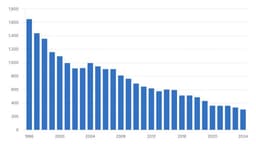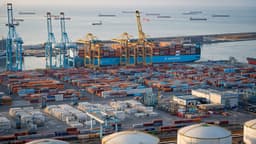Home / Environment / Europe's Climate Ambition Fades as Competitiveness Concerns Rise
Europe's Climate Ambition Fades as Competitiveness Concerns Rise
14 Nov, 2025
Summary
- Europe's climate leadership at risk as policies are watered down
- Nationalist and far-right groups gain traction, criticizing Green Deal
- EU weakens 2040 emissions reduction plans, delays key regulations

In 2025, Europe's climate leadership is at risk of unraveling. A decade ago, the landmark Paris climate agreement relied on cooperation between the US and China, with Europe acting in concert with a broad coalition of global south countries to elevate its ambition. This paved the way for the European Green Deal in 2019, which enshrined the EU's goal of climate neutrality by 2050.
However, the dominant narrative around the Green Deal has shifted in the wake of the Covid-19 pandemic and Russia's invasion of Ukraine. Nationalist and far-right groups have gained traction, turning the deal into a "bogeyman" and claiming it would cause Europe's deindustrialization. Alongside fossil fuel and agricultural lobbies, these forces have repeatedly attacked the Green Deal, amplified by pressure from the Trump administration and gas exporters like Qatar.
As a result, the EU has significantly weakened its 2040 greenhouse gas reduction plans, embedding review clauses to allow for backsliding during economic downturns. The expansion of the emissions trading scheme and the implementation of the deforestation regulation have also been delayed. Further rollbacks are expected under the guise of bureaucratic simplification, undermining the EU's sustainability efforts.
This backtracking risks undermining Europe's global standing as a climate leader, making China appear more virtuous in comparison. It also strains the EU's relationship with the global south, reducing its combined clout to press China to meet its responsibilities. While Europe remains at the forefront of the journey towards net zero, its self-interest lies in once again finding political common cause with the global south to advance climate action.




